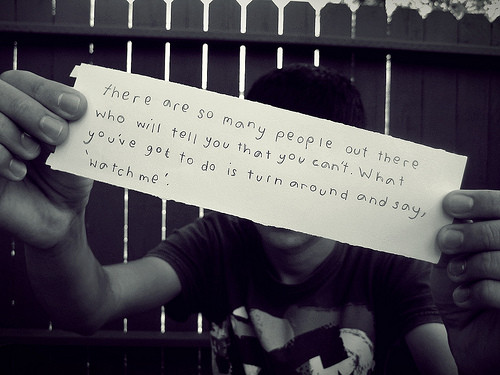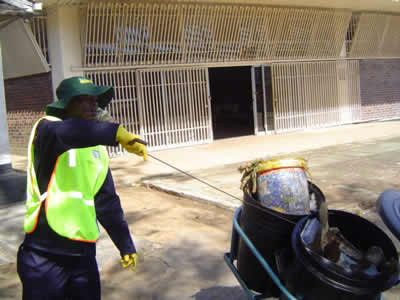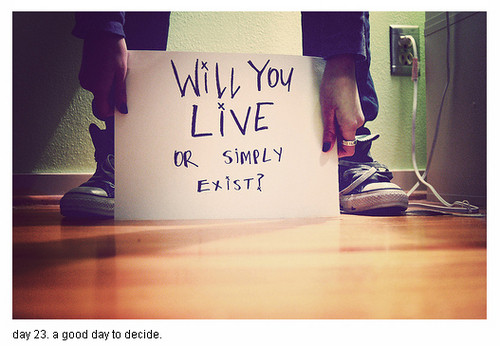My purse, along with my Zimbabwean National ID card, driver’s license and some money was stolen on a night out a few months ago. Dutifully, I went to my nearest police station to report it. The officer in charge wrote down the details of what had happened in a big book. He then wrote a reference number on a torn slip of paper. When I went to the Central Vehicle Registry to get a replacement driver’s license, the woman at the window rudely told me that my reference number was not sufficient, and they needed an actual form. When I went back to the police station to request it, I was informed that they didn’t have it, but whichever officer I was talking to could find it, provided I gave him $5 or $10 for his trouble. I didn’t want to pay a bribe; I’d stop occasionally to find out if the forms had come. Finally I gave up.
The police have stopped me on several occasions, and when they find nothing wrong with my car, they usually ask for my driver’s license. At some roadblocks, they’ve asked for my ID number then called CVR to verify. At others they’ve taken my details and given me a ticket to be paid later. This morning I encountered one where a police officer demanded I make payment immediately.
He was an arrogant, swaggering sort of policeman, anozvinzwa shuga. Having done a cursory inspection of my car, he asked for my license. I gave him a certified copy of my passport and told him what happened at the CVR. He delivered a condescending monologue on police procedure, and what he understood of the law.
‘That’s great’, I replied,’ but in my case that’s not what happened.’
‘Saka todii?’ he asked.
I told him the law said that I had seven days to present my license or pay a fine at nearest police station and that since I had neither a license nor money on my person he should write me a ticket. He replied that I was lying. I lost my temper and shouted at him. He said that if I wanted to leave I would have to pay $20.
The men in my life, my other included, have always accused me of being volatile, particularly when I’m angry. My brothers always say ‘Zvako zve marights ako zvicha kurovesa’ when they have to get me out of trouble.
When I shoved my purse in the officer’s face to shown him it was empty, he said, Imi amai, regai kuita naro. Kana tichida tino gona kuimpounda mota yenyu. Asi murikuda kusungwa?’ (Look lady stop arguing. We can impound your vehicle if we want to. Are you trying to get arrested?)
I got even angrier and told him that I pay taxes and therefore do not pay bribes, and of course shouted some more:
‘You’re a police officer; your job is to help the public!’
‘Handina basa naizvozvo amai, fonerai munhu auye nemari.’ (I don’t care about any of that; call someone to bring the money for you).
Thankfully, he walked away, and I had enough presence of mind not get out of my car and really lay into him.
Finding that I was not going to pay, and had made myself somewhat comfortable at the roadblock, the police eventually let me go. I think most times people do pay the bribe because they are in a hurry to get where they are going. Not everyone is angry enough to sit in simmering protest at a roadblock. But imagine if we did, and we stopped letting misinformed police officers break the laws they are supposed to uphold.
A different officer finally came to my car and heard me out. He even helped me get the form I needed to take to the CVR. As I drove away he said, ‘Musaore moyo amai, mapurisa ese haana kufanana.’ (Don’t be bitter, not all police officers are the same.)












